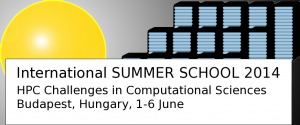Canada’s fastest and most powerful supercomputer, located at the University of Toronto and built by IBM, has been ranked 16th on the top 500 list of the most powerful commercially available computer systems in the world. The top 500 list was announced today at the annual International Supercomputing Conference in Hamburg, Germany.
“With a high-performance computer that is among the top 20 on the planet, the University of Toronto has become one of the world’s premier computational research institutions,” said Professor Paul Young, vice-president (research) “The supercomputer will attract researchers from around the world and will enable us to conduct research in a variety of disciplines that will have a direct and positive impact on society.”
Designed by IBM and SciNet, a consortium that includes the University of Toronto and affiliated research hospitals, the IBM System x iDataPlex is part of a supercomputer facility that pioneers an innovative hybrid design containing two systems that can work together or independently, connected to a massive five petabyte storage complex able to store the contents of more than one million DVDs – which would stack more than twice the height of the CN Tower. The iDataPlex server is specifically designed for data centres that require high performance, yet are constrained on physical space, power and cooling infrastructure.
With more compute power than existed on Earth at the end of 2001, the iDataPlex is capable of performing over 300 trillion calculations per second – more than 10 times faster than any other research system in Canada. “If you gave a calculator to every single man, woman and child in Canada and had them each do one calculation per second, it would take the entire country four months to do what this machine does every second,” said Chris Loken, chief technical officer at SciNet. It is the world’s fourth most powerful system built on a university campus and the second most powerful university system outside the United States. The extraordinary speed of the iDataPlex comes from the 7,500 Intel Xeon© Processor 5500 series 2.53 GHz processors inside. This model outperforms the previous generation Intel Xeon© Processor 5400 series by over 2.25 times within a similar power configuration.
“Congratulations to the University of Toronto’s SciNet installation being recognized as the largest and most powerful supercomputer in Canada,” said Richard Dracott, Intel’s general manager of high performance computing. “We are honoured to have platforms based on the Intel Xeon© processor 5500 series to drive Scinet’s objectives to solve some of the most complex challenges facing our planet.”
The iDataPlex system will enhance U of T’s competitive position in global research projects in aerospace, astrophysics, bioinformatics, chemical physics, medical imaging and climate change prediction by analysing high-resolution global models to predict future risks, including the faster-melting Artic sea ice. Another immediate project is the construction of regional climate change predictions for Ontario and the Great Lakes watershed region.
The system will also play a key role in the global ATLAS project, using data collected by the Large Hadron Collider in Geneva to explore the modern scientific mystery of why matter has mass and what constitutes the mass of the universe. Because of its hybrid design, the system is extremely flexible and capable of running a wide range of software at a high level of performance.
The system provides up to five times the density versus competitive offerings and can regulate the data centre’s temperature 70 per cent more efficiently with IBM’s Rear Door Heat Exchanger and is entirely water cooled. Intel technologies like Integrated Power Gates, which automatically turn off any processors when not in use, will further assist in energy savings, making the system among the most efficient. The state-of-the-art design saves enough energy to power more than 700 homes for a year.
“We are particularly proud of the cooling system, which makes this one of the most energy-efficient supercomputer installations in the world,” Loken said. “Typically, 40 to 70 per cent of the energy going into a data centre is used for cooling or is lost for other reasons, while we expect our non-computing overhead to be reduced to 16 per cent. The data centre’s design makes use of free cooling for roughly one-third of the year.”
The iDataPlex system adds to SciNet’s existing supercomputer capability, which includes an IBM Power 575 system with 3,328 POWER6 processing cores with peak performance of more than 60 trillion calculations per second. SciNet is one of seven consortia that comprise Compute/Calcul Canada, a national high-performance computing resource for academic institutions. Funding for SciNet has been provided by the Canada Foundation for Innovation’s National Platforms Fund, in partnership with the Government of Ontario and the University of Toronto.




